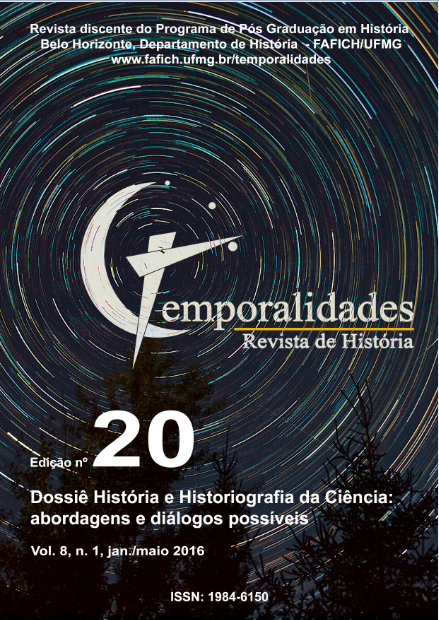Trabalho, tradição e família nas Culturas Jurídico-Penais consuetudinárias de escravos africanos, Minas Gerais, 1840-1860
Palavras-chave:
Cultura jurídico-penal, justiça, naçãoResumo
O Código Criminal do Brasil de 1830, o Código do Processo Criminal de 1832 e as leis que reformaram a estrutura da justiça na década de 1840, racionalizaram o direito penal no Brasil e reprimiram concepções tradicionais de justiça dispersas pela população. Este modelo de ordem foi influenciado por valores patriarcais, senhoriais e escravistas, pela formação dos juristas brasileiros em Coimbra pós reforma pombalina e por heranças culturais do antigo regime. Contudo, entre a população, ainda prevaleciam concepções tradicionais, consuetudinárias de justiça, baseadas nas variadas vertentes culturais inseridas neste contexto. Seguem neste texto algumas interpretações sobre comportamentos de escravos africanos registrados em crimes de homicídio, e se expõem questões sobre aspectos culturais de origem centro-africana e suas formas de ressignificação no Brasil. As fontes utilizadas foram alguns processos criminais e inventários, registrados entre as décadas de 1840 e 1860, em duas vilas de Minas Gerais: Oliveira e São João Del-Rei. O objetivo foi levantar hipóteses sobre os aspectos socioculturais consuetudinários ou tradicionais que influenciaram estes crimes, e como estes comportamentos encontraram campo aberto para sua efetivação, considerando que a violência era um recurso relativamente legitimado no seio sociedade daquela época, principalmente na defesa dos valores familiares e de hierarquia no trabalho.
ABSTRACT: The 1830 s Criminal Code, the Criminal Process Code, and the laws that amended the justice structure at the 1840s decade, rationalized the criminal legal right in Brazil and cracked down the justice traditional conceptions dispersed between populations. This order model was influenced by patriarchal, lords, and slaveholding values, by the Brazilians jurists graduated in Coimbra after Pombal s reform, and by Ancient Regime s cultural heritages. However, between people, prevail yet traditional and consuetudinary justice conceptions, based on many cultural sheds inside this contexts. Follow in this text, interpretations about African slaves behaviors registered in homicide crimes, and expose questions about cultural aspects from Central African sources and their resignification in the Brazil. The historic sources researched were some legal criminal process and inventories, registered between 1840s and 1860s, in two villages of the Minas Gerais province: Oliveira and São João del-Rei. The objective was to get up assumptions about consuetudinary and traditional social cultural aspects that influenced these crimes, and how these behaviors found open field to their effectuation, considering the violence like a relatively legitimated resource inside the society of that time, mainly when used in the defense of the family values and work hierarchy.
KEYWORDS: Criminal legal cultures; justice; nation.
Downloads
Downloads
Publicado
Edição
Seção
Licença
O(A) autor(a), para fins de submissão à revista Temporalidades, deve declarar que o trabalho aqui submetido é de autoria do mesmo e nunca foi publicado em qualquer meio, seja ele impresso ou digital.
O(A) autor(a) também declara estar ciente das seguintes questões:
Os direitos autorais para artigos publicados na Temporalidades são do autor, com direitos de primeira publicação para o periódico;
Em virtude de aparecerem nesta revista de acesso público, os artigos são de uso gratuito;
A revista permitirá o uso dos trabalhos publicados para fins não-comerciais, incluindo direito de enviar o trabalho para bases de dados de acesso público.
A Temporalidades adota a licença internacional Creative Commons 4.0 (CC BY).











